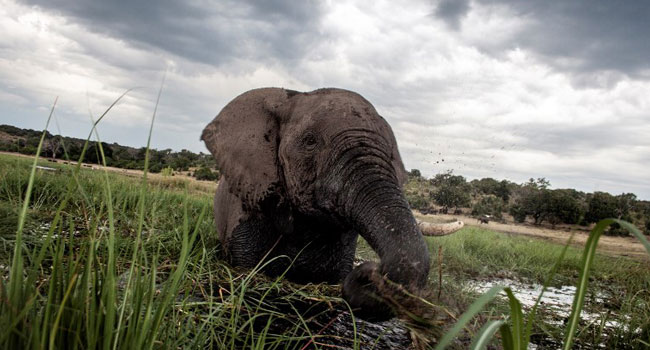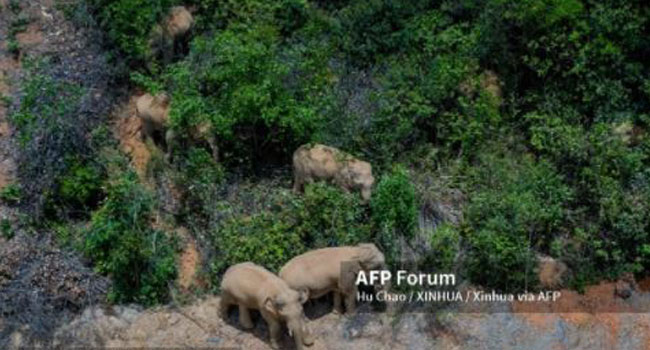
A Tanzanian man has been arrested after authorities found a stash of ivory buried under his house, estimated to come from around 117 elephants, authorities said Thursday.
The suspect, who had been sought by authorities since 2016, had in his possession 338 pieces of elephant tusk, and 75 whole tusks, the minister of natural resources, Hamisi Kigwangalla, said in a statement.
He was arrested along with seven alleged accomplices, and the tusks are believed to have come from Tanzania and Mozambique.
“Until his arrest on Tuesday, he was unable to move this stock, because we have become extremely vigilant,” said Kigwangalla.
READ ALSO: Two Aid Workers Killed In ‘Ambush’ In Western Ethiopia
“I am giving a period of grace of one month for any person in possession of elephant tusks to hand them in to authorities without facing prosecution.”
Since 2016, around 1,000 poachers, some heavily armed, have been arrested in Tanzania whose elephant population plunged 60 percent between 2009 and 2014 due to poaching.
In February a Tanzanian court sentenced Chinese citizen Yang Fenlan — dubbed the “Ivory Queen” — to 15 years in jail for her role in trafficking tusks from more than 400 elephants.
Poaching has seen the population of African elephants fall by 110,000 over the past decade to just 415,000 animals, according to the International Union for Conservation of Nature (IUCN).
The slaughter is being fuelled especially by demand in Asia, where ivory is used for jewellery and ornamentation.




